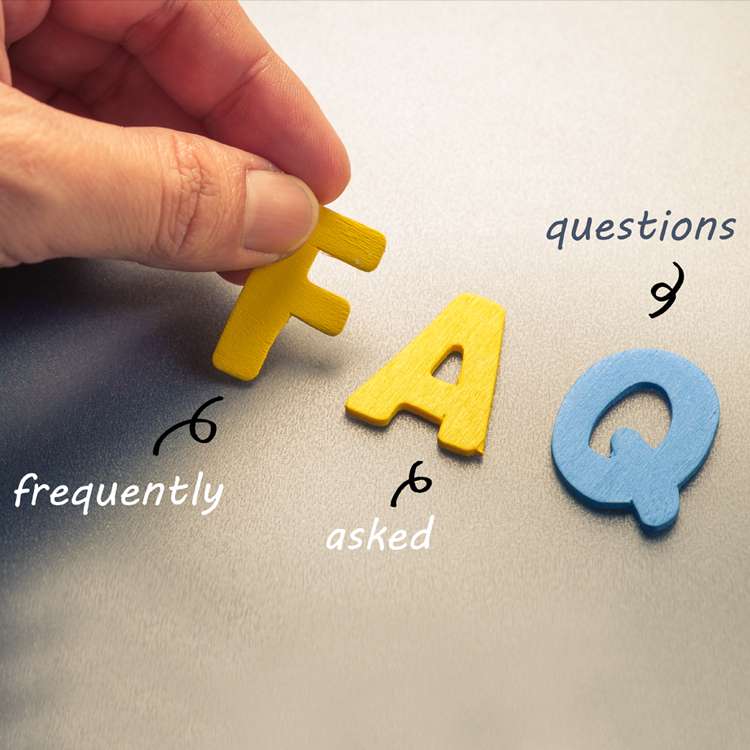Patients frequently ask me to clarify the difference between a dentist and oral health therapist.
This question has emerged as the popularity of hygienists – or oral health therapists (OHT) – has escalated in recent years and is now considered the gold standard.
It’s useful for patients to understand their differences so they can make informed decisions about their dental care.
With a clearer understanding, both clinicians and patients can work from a basis of shared expectations.

What’s an Oral Health Therapist?
An Oral Health Therapist (OHT) is a 3 year degree-qualified clinician who has completed studies in dental hygiene and dental therapy.
An OHT mostly perform hygiene treatments with some other dental treatments for children up to the age of 18. These include fissure sealants, fillings and provide care for more severe forms of gum disease.
A dentist is also degree-qualified. They have completed five years of undergraduate study in dentistry. Educated in all facets of oral care, this higher qualification means dentists perform more complex dental work. A general dentist can diagnose oral health conditions. However, they may refer to other specialists if needed.
Both dentists and oral hygiene therapists must be registered with the Australian Health Practitioners Registration Association (AHPRA). AHPRA has strict requirements for registered dental professionals, including annual compulsory professional development. Working like a kind of guarantee, this ensures your dentist or OHT are current with advances in science and dental practice.
Your dentist and oral health therapist complement each other in the services and care they provide.
How do a dentist and oral health therapist work together?
Once you’re on an oral hygiene maintenance program, you would meet with your oral health therapist. This is usually every six months or might occur every few months depending on your needs.
He or she would clean your teeth and gums. They would also administer fluoride treatments and check for gingivitis and other oral disease.
As the name suggests, an oral health therapist will discuss the way to properly care for your teeth. Oral hygiene is their main focus and specialty.
Depending on the outcome from your check and clean, the dentist may also come in and see you at this time.
Often at the recommendation of the therapist, the dentist will be the one to diagnose any problems. This could involve examining x-rays, repairing teeth and prescribing medication.
They may perform procedures like root canals, fillings for cavities, dental crowns and much more.
In simple terms, dentists can complete more skilled treatment. A therapist provides more general care and education for teeth and gums.
Why see an oral health therapist?
Both dentists and oral health therapists can clean teeth at regular hygiene checks. However, there are great advantages to working with an OHT for hygiene.Their whole and sole focus in their profession is ‘cleaning’ and educating.
While a dentist is kept busy with more complex treatments, an oral health therapist will spend much more time with a patient, thereby offering a more personalised experience.
Another advantage to working with an oral health therapist is the fee is less than if a dentist were providing the same service.
Many oral health therapists are females. Some people may find it easier to receive their regular hygiene treatments from an oral health therapist. If you have a fear of the dentist, this is a good idea.
An OHT is qualified to treat both adults and children and can therefore see the whole family.
If you are on an oral hygiene maintenance program working with an OHT, this is considered the best option.
Still have questions?
If you’re still confused about whether seeing an OHT is a good option for you and your family, why not get in touch?
Our friendly team is trained to explain the difference between a dentist and oral health therapist and will help guide you in the right direction based on your specific oral hygiene needs.
When you visit our Gold Coast dental practice for your general check-up and clean, most of the time you’ll be in the care of one of our amazing Oral Health Therapists, as well as your Dentist. Many patients ask us “What’s the difference between an Oral Health Therapist and a Dentist?”, so we’ve put together a few answers to these FAQs in our dental article below!
Article Summary:
- What’s an Oral Health Therapist?
- How do a Dentist and Oral Health Therapist work together?
- Why see an Oral Health Therapist?
What’s an Oral Health Therapist?
Oral Health Therapists (OHTs) are dental clinicians who are dual qualified in dental therapy and dental hygiene. To obtain registration with the Australian Health Practitioners Registration Association (AHPRA), OHTs must graduate from a 3 year university degree.
OHTs provide a wide range of dental care to people of all ages; children, adolescents and adults are all able to experience excellent dental care in the qualified hands of an Oral Health Therapist.
An OHTs duties include examination, routine dental treatment and preventative work. This includes taking X-rays, fillings, fissure sealants and extractions of deciduous teeth. They are also able to stabilise and maintain gum health in patients of all ages, including those suffering from gum disease. OHTs play an important role in oral health promotion. They work towards improving oral health in patients through education and therapeutic measures. OHTs create awareness, prevention and wherever necessary, an early intervention system for oral disease.
There are strict guidelines for OHTs to maintain their registration with the Australian Dental Board. This includes participation in theory and practical based learning annually. Continued professional development ensures OHTs are up to date with advances in dentistry. This encompasses clinical skills, new materials and theories to provide up to date and exceptional dental care to the entire community.
OHTs can provide complete care for children and adolescents. When required, they are able to refer specific cases to general dentists and dental specialists. This will always ensure optimal care. For adults, your dentist and OHT complement each other in the services and care they provide. While your Dentist will focus on diagnosis and the completion of routine or complex treatment plans, your Oral Health Therapist will assist in the stabilisation and maintenance of your oral health.
How do a Dentist and Oral Health Therapist work together?
Having a routine check-up and clean appointment will flow efficiently with 2 practitioners. The Dentist and Oral Health Therapist work together to ensure a thorough and gentle dental maintenance appointment. The Dentist will review X-rays and photographs taken by the Oral Health Therapist. They will then examine all teeth and surrounding soft tissues. The oral health therapist will spend extended time with each patient, creating a personalised experience and allowing educating on home care routines. They will check for gingivitis and other oral diseases. After the completion of an important hygiene clean, they will administer a fluoride treatment, discuss and plan for future maintenance appointments.
Why see an Oral Health Therapist?
- They treat both adult and children
- They prioritise oral health education and promotion
- They diagnosis, stabilise and maintain disease in teeth and gums
- They advise on preventative and therapeutic methods to control oral disease
- They conduct dietary counselling
- They place on emphasis on, and conduct pleasant dental maintenance appointments for long term oral health
Tooth and gum disease can be uncomfortable, expensive and create an unwelcome interruption to everyday life, or even worse – an important event or holiday! Prevention is the key to avoiding oral health concerns. The ability to prevent such disease relies on your knowledge of dental health and access to routine dental maintenance appointments. Oral Health Therapists have the skills to help you achieve the best dental health possible.
You can get to know all of the amazing Oral Health Therapists and Dentists at Oasis Dental Studio by visiting our About Us page.
Dental Check-Up and Clean at Your Gold Coast Dental Clinic
At the moment, our Gold Coast dentists are only able to provide emergency dental treatment to patients who are experiencing pain, swelling or dental trauma, while general and cosmetic dental appointments will need to be deferred until further notice due to COVID-19 operating restrictions. If you are experiencing a dental emergency, please contact our friendly team on 07 5526 8722 to find out if you meet the criteria for emergency treatment.
To be notified as soon as we can offer all other dental treatments and for our best dental care advice, follow our social media pages below, sign up to our newsletter and check out our COVID-19 updates page.
Your local dental clinic will have a team of dental professionals working to ensure clients are getting the best possible treatment and advice about oral health care. A team approach across different areas of expertise is how your dental practitioner provides the best possible solutions for your dental needs.

Based on education and training, there are different types of dental practitioners that include dentists, dental hygienists, dental prosthetists, dental therapists, and oral health therapists. If a dentist has additional training, they are often referred to as a dental specialist. In addition, your local dental team will also likely have support staff, which includes dental assistants and technicians.
Oral health therapists form an integral part of your oral health team and today we’ll be focusing on how they fit into your dental regime.
Who Are Oral Health Therapists?
An oral health therapist is qualified in two important roles — as a dental therapist and as a dental hygienist. This means they can provide diagnosis, treatment advice, and preventive programs for the oral health of children and adults.
A good oral health therapist will be able to assess your oral health and find why issues are occurring, determine the correct treatment for you, and provide advice on ensuring your mouth stays healthy.
What Does an Oral Health Therapist Do?
The work an oral health therapist undertakes can be very similar to a dentist’s; however, it centres mostly on motivating people to take better care of their oral health. They perform general dental treatments for children (including examinations, fillings, and tooth extractions), assessment and treatment of gum diseases, as well as oral health promotion and disease prevention.
While they may perform similar tasks as a general dentist, you can think of oral health therapists as allied health professionals who work with the rest in a team to provide their patients with the best dental treatments.
What Qualifications Does an Oral Health Therapist Have?
Academically, an oral health therapist has three years of full-time study into a Bachelor Degree in an approved area by the National Board (the difference in training between a dentist and an oral health therapist is just one or two years).

Since they work with other dental practitioners, oral health therapists have an impeccable ability to work in a team environment. They communicate with different people day to day — from colleagues and parents, to patients of different ages — and their experience with verbal and written communication skills only result in long-lasting, trusting relationships. And because they often find themselves working with children, most oral health therapists have that warm, caring and gentle personality that helps them put even the most anxious kid at ease.
A Day in the Life of an Oral Health Therapist
So what goes on in a day of an oral health therapist? It varies, of course, but they primarily follow preventive focused dental care. They usually begin a session by checking your teeth for any signs of dental disease. From there, they provide dental treatment to help prevent cavities, and this often comes in the form of teeth cleaning, dental x-rays, fillings, removal of teeth and sealants. Should they find other issues outside their expertise—a need for orthodontic work, for instance—they will refer you to a dentist.
Now oral health therapists never let their patients leave without making sure they know how to look after their teeth, so they always take the time to share quick and easy dental care tips and encourage good oral care habits, especially to children — both in the dental clinic and the classroom. You can also expect to get some healthy food recommendations. After all, healthy eating contributes to good oral health and overall wellbeing.
Your Dental Health Contributes to Your Overall Health
Dental health is as important as your overall health. To ensure you’re getting the right care and treatment for your teeth to look and feel their best, you need a complete dental team that includes an oral health therapist. Contact us at Coburg Hill Oral Care on (03) 9041 5301 to make a booking today.



